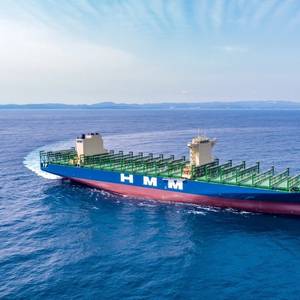
HD Korea Shipbuilding & Offshore Engineering (HD KSOE), the intermediate holding company for HD Hyundai's shipbuilding business, has signed a shipbuilding contract with HMM for eight 13,400-TEU dual-fuel container ships.The vessels ordered are 337 meters in length, 51 meters in width, and 27.9 meters in height.

Mavrik Marine, Inc. was selected to build high-speed passenger ferries for the Golden Gate Bridge Highway & Transportation District. Mavrik will construct catamaran passenger ferries as part of the District’s eight vessel Lima Class Ferry Replacement Program to provide transportation services in San Francisco Bay.

Odfjell SE and Japan’s Nissen Kaiun Co., Ltd. have formed a new Bergen-based joint venture, Odfjell Hakata Maritime AS, marking a significant expansion of their long-standing partnership and adding substantial capacity to the global chemical tanker market.The JV will launch with a fleet of 10 stainless-steel chemical tankers, equally contributed by the two companies.
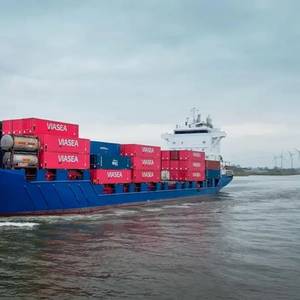
Ellerman City Liners, part of GB Global, has acquired Viasea Shipping from Norway’s ColliCare Holding AS, a move that strengthens Ellerman’s position in the European shortsea shipping market and deepens its commitment to sustainable logistics solutions.Founded in 2016, Viasea has grown rapidly as a challenger brand in Northern Europe’s shortsea sector, operating scheduled services between the UK

The United States on Friday threatened to use visa restrictions and sanctions to retaliate against nations that vote in favor of a plan put forward by a United Nations agency to reduce planet-warming greenhouse gas emissions from ocean shipping.U.N. member nations are scheduled to vote next week on the International Maritime Organization's Net-Zero Framework proposal to reduce global carbon
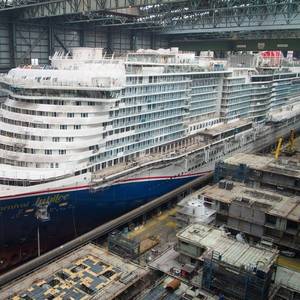
Order intake, exports, and green technology demand fuel confidence for 2025Germany’s maritime equipment and offshore supply industry is posting steady growth in 2024 and setting an optimistic course for 2025, according to new figures released by the VDMA Marine Equipment and Systems Association.With an average turnover increase of 5.
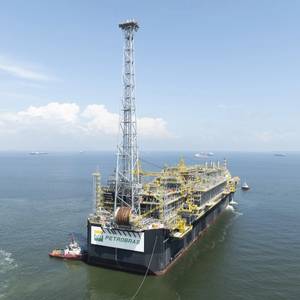
Seatrium has announced the impending delivery of Petrobras 78 (P-78), the first of a series of turnkey floating production, storage and offloading (FPSO) units to Petrobras.The sailaway ceremony took place two weeks ago at Seatrium’s Singapore yard. Upon delivery, the P-78 will be deployed in Brazil’s prolific Buzios field, the largest deepwater oil field globally
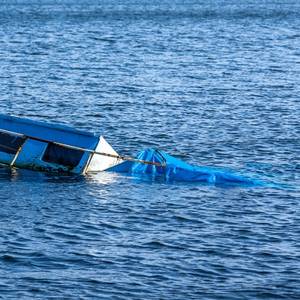
By the time Robbie Roberge spotted the fire consuming his boat's galley last August, he knew he had just minutes to evacuate his beloved Three Girls fishing vessel, named for his daughters.As the flames spread up the boat's walls, he helped his crew into safety suits, deployed a life raft and made a mayday call to alert nearby mariners and the U.S.

The global maritime sector is entering an era of heightened geopolitical and regulatory uncertainty that threatens to offset long-term safety gains, according to Allianz Commercial’s 2025 Safety and Shipping Review. While vessel losses have reached a record low, the industry faces a volatile landscape shaped by trade conflict, increased sanctions, shadow fleets

Fast-growing energy demand is driving the need for technical support and guidance in new locations, writes Terrance Roberts, Manager, Global Business Development, ABS.Surging appetite for natural gas is accelerating the development of global and regional supply chains, with established producers seeking new markets and emerging suppliers looking to meet demand from local consumers.
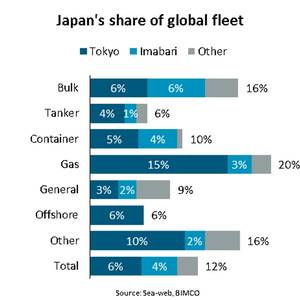
Japan is world’s third largest shipping nation as owners control 12% of the fleet“Combined, Japanese shipowners currently own 12% of the global fleet’s deadweight tonnes capacity (DWT). This makes Japan the third largest shipowning country in the world and one of only three countries where shipowners control more than 10% of the global fleet’s DWT capacity,” says Niels Rasmussen
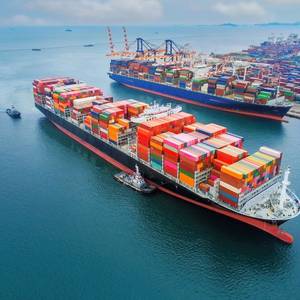
The global economy is bracing for renewed turbulence following U.S. President Donald Trump’s announcement on Wednesday of sweeping new tariffs, triggering fears of a global trade war and sparking immediate market and political reactions.According to the White House, the new measures include a 10% minimum tariff on most imported goods, with certain products - particularly those from major U.S.